
23 minute read
Academic Calendar
SUMMER SEMESTER 2022
First Day of Registration Summer Interim Session Begins Last Day to Drop Interim Classes with 100% Refund* March 14 May 16
May 17
Tuition Payment Arrangement Due for Summer Classes May 25
Memorial Day - Campus Closed Last Day to Withdraw from Interim Classes (W Grade)**
Summer Interim Session Ends
Summer Regular Session Begins Last Day to Drop Summer 8-Week Classes with 100% Refund* Summer 2021 Graduation Applications Due
Mid-Term
July 4th Holiday Observed - Campus Closed Last Day to Withdraw from 8-Week Classes (W Grade)** Summer Regular Session Ends
Summer Regular Session Grades Due 1pm May 30
June 1
June 3
June 6
June 10
July 1
July 1
July 4
July 22
July 29
August 1
FALL SEMESTER 2022
First Day of Registration Tuition Payment Arrangement Due for Fall Classes Professional Growth & Development (PG&D) -
No Classes
Faculty Advisement/Planning
Fall Classes and Session I Begins
Last Day to Drop First 8-Week Classes with 100% Refund* Last Day to Drop 16-Week Classes with 100% Refund*
Labor Day - Campus Closed
Last Day to Withdraw from First 8-Week Classes (W Grade)** Mid-term 16-Week Classes Session I Ends 1st 8-Week Graduation Session II Begins Professional Growth & Development (PG&D) -
No Classes
Last Day to Drop Second 8-Week Classes with 100% Refund*
First Day of Registration for Spring 2022
Veterans Day - Campus Closed Thanksgiving Holiday - Campus Closed Last Day to Withdraw from Second 8-Week Classes & 16-Week Classes (W Grade)**
December 2022 Graduation Applications Due Session II Ends Semester Examinations Fall Term Ends Fall Grades Due by 1pm March 14 August 3
August 10
August 13 & 14
August 15
August 19
August 26
September 5
September 30
October 7 October 7 October 7 October 10
October 10
October 14
October 17
November 11 Nov 23 - 25
November 25
December 1 December 2 December 6 - 9 December 12 December 12
SPRING SEMESTER 2023
First Day of Registration Spring Interim Session Begins Last Day to Drop Interim Classes with 100% Refund*
October 17 December 13
December 14
Tuition Payment Arrangement Due for Spring Classes December 21
Holiday - Campus Closed Last Day to Withdraw from Interim Classes (W Grade)** Professional Growth & Development (PG&D) -
No Classes
Faculty Advisement/Planning
Spring Interim Session Ends
Spring Classes and Session I Begins Last Day to Drop First 8-Week Classes with 100% Refund* Martin Luther King Jr. Birthday - Campus Closed Last Day to Drop 16-Week Classes with 100% Refund* President's Day - Campus Closed Last Day to Withdraw from First 8-Week Classes (W Grade)** May 2023 Graduation Applications Due Mid-Term 16-Week Classes
Session I Ends 1st 8-Week Graduation
Spring Break - No Classes Session II Begins First Day of Registration for Summer & Fall 2023 Last Day to Drop Second 8-Week Classes with 100% Refund* Professional Growth & Development (PG&D) -
No Classes
Spring Holiday - Campus Closed
Last Day to Withdraw from Second 8-Week Classes & 16-Week Classes (W Grade)** Session II Ends Semester Examinations Spring Term Ends Graduation
Spring Grades Due by 1pm
Dec 23 - Jan 2
January 4, 2023
January 4
January 5 & 6
January 6
January 9
January 13
January 16
January 23
February 20
February 24
March 1
March 3
March 3 March 3
March 6 - 10
March 13
March 13
March 18
April 6
April 7
April 28
May 5 May 8 - 11 May 12 May 12
May 15
*Students have the privilege of dropping a class without the class becoming part of their permanent academic record if they do so during the "drop" period. Courses dropped during the drop period automatically receive a 100% tuition refund. The length of the drop period will vary based on the length of the course.
**Students withdrawing from a course after the initial drop period will receive a "W" grade on their transcript that will not affect their grade point average at KC and are not eligible for a refund. A student who does not withdraw from a course during the withdrawal period may be subject to an "F" grade.
MISSION
Kaskaskia College is committed to life-long student learning and to providing quality comprehensive education.
VISION STATEMENT
Kaskaskia College aspires to be an institution of “first-choice’ for its district citizens and dedicated to providing the highest level of student-centered educational experiences with an unshakeable focus on student success. In collaboration with its community and supported by an effective foundation, Kaskaskia will be a premier institution of higher learning education; a regional workforce training institution; and a multi-provincial center for intellectual, cultural and social events.
DIVERSITY
Kaskaskia College is committed to achieving a community free from all forms of discrimination and harassment in its policies, practices, and endeavors. Further, Kaskaskia College is committed to fostering a diverse community and to promoting greater awareness of and sensitivity to issues of diversity. Toward that end, Kaskaskia College asserts the dignity and worth of every human being and the value of diversity as a source of strength in all its forms, and in the diverse perspectives of students, faculty, staff and administrators.
INSTITUTIONAL GOALS
1. Provide a quality educational experience.
a. Quality instructional offerings - Kaskaskia College is committed to providing a high-quality instructional offerings for its student populations in the areas of Arts and Sciences, Career and Technical Education, Health Sciences and Adult Education. b. Quality services and infrastructure to support instructional offerings - Kaskaskia College is committed to facilitating student success by providing the services and infrastructure that meet the needs of a modern institution of higher education.
2. Effectively manage enrollment and resources - Kaskaskia College is committed to ensuring the health and sustainability of the institution by maximizing enrollment and resources through data-informed processes. 3. Maximize regional integration - Kaskaskia College is committed to collaborating with regional employers, schools, and organizations. 4. Engage the community - Kaskaskia College is committed to being a center for intellectual, cultural, and social experiences for its district.
CORE VALUES
Respect - Having a genuine regard for others and showing consideration for the diversity of others to foster an environment of teamwork and excellence. Responsibility/Personal -Assuming ownership of personal actions and being accountable for one’s own behavior, assigned tasks, duties and functions.
Responsibility/Institutional - Being accountable for institutional excellence by providing accessible, affordable and diverse educational opportunities that facilitate individual success.
Honesty - Being truthful and demonstrating integrity above reproach; and maintaining open, honest, clear, and effective internal and external communications.
Compassion - Understanding and considering the feelings of others and recognizing the effect one’s actions will have on others in order to impart hope for all parties, while remaining sensitive to the needs of others.
Fairness - Practicing actions that are just and impartial while treating people in an equitable and consistent manner in recognizing the diverse needs of others.
ACCREDITATION/APPROVALS
KASKASKIA COLLEGE HAS BEEN APPROVED BY THE:
• Illinois Community College Board • Illinois Board of Higher Education • Illinois Department of Veterans’Affairs • Illinois State Board of Education
AND IS ACCREDITED BY:
• The Higher Learning Commission (hlcommission.org), a regional accreditation agency recognized by the U.S.
Department of Education. For information on its current status, please visit our website https://kaskaskia.edu/ accreditation/ • Accreditation Commission for Education in Nursing (ACEN) • The Joint Review Committee on Education in Radiologic
Technology • Commission on Accreditation in Physical Therapy Education • Commission on Dental Accreditation of the American Dental
Association (Dental Assisting) • Commission on Accreditation for Respiratory Care • Illinois Department of Financial and Professional
Regulations (Associate Degree Nursing, Practical Nursing • Illinois Department of Public Health (Certified Nurse
Assistant) • National Automotive Technicians Education Foundation (Automotive Technology) • HVAC Excellence
LICENSED BY:
The Illinois Department of Financial and Professional
Regulations (Cosmetology).
AND IS AUTHORIZED UNDER FEDERAL LAW TO ENROLL INTERNATIONAL STUDENTS.
Questions on the following: Contact the main number at (618) 545-3000 or 800-642-0859 for questions or to be directed to the following office:
ACADEMIC ADVISING 545-3060................................................. ACADEMIC CENTER FOR EXCELLENCE 545-3160................. ADMISSIONS & REGISTRATION 545-3040 ............................... ADULT EDUCATION & LITERACY 545-3115 ........................... ATHLETIC TEAMS
Baseball 545-3327......................................................................
Cross Country ..545-3372 ..........................................................
Men’s Basketball 545-3362 ........................................................
Women’s Basketball 545-3146....................................................
Women’s Soccer 545-3175..........................................................
Men’s Tennis 545-3175 ..............................................................
Women’s Tennis 545-3175 ........................................................
Softball 545-3326 .......................................................................
Volleyball 545-3372 ................................................................... BOOKSTORE 545-3090................................................................. CASHIER 545-3057 ........................................................................ CHILDREN’S LEARNING CENTER 545-3323 ........................... COMMUNITY/CONTINUING EDUCATION 545-3255 .............. DEAN OF ARTS & SCIENCES 545-3025 ..................................... DEAN OF CAREER & TECHNICAL EDUCATION 545-3030..... DEAN OF ENROLLMENT SERVICES 545-3048......................... DEAN OF HEALTH SCIENCES ...................................545-3331 ASSOCIATE DEAN OF WORKFORCE ENGAGEMENT AND INDUSTRIAL CAREERS ..............................................545-3113 DEPARTMENT OF PUBLIC SAFETY...........................545-3199 FINANCIAL AID ........................................................... .545-3080 ......LIBRARY ................................................................. .545-3130 .......SUCCESS CENTER ................................................ 545-3160 .......STUDENT ACTIVITIES ........................................ 545-3134
......TESTING ..................................................................
545-3160 .......TRANSCRIPTS & RECORDS ................................ 545-3040
TERMS YOU SHOULD KNOW
First time students are often unfamiliar with some college terms. Students need to be familiar with:
Academic Advisor: A trained professional who helps students decide what courses to take, clarifies degree requirements, and aids in assessing progress toward degree and/or certificate completion.
Adjunct Instructor: A faculty member employed by the college to teach on a part-time basis. These instructors often currently work in the field in which they are teaching.
Accreditation: The certification that a school or program meets a set of quality standards. The Higher Learning Commission; one of six quality regional accreditations associations in the United States, accredits Kaskaskia College. For information on its current status, please visit our website https://kaskaskia.edu/accreditation/. In addition, many KC programs are individually accredited by professional organizations.
Admission Requirements: The educational background and/or academic abilities that a student must demonstrate before being fully admitted into a particular instructional program. FAILURE TO MEET SPECIAL PROGRAM ADMISSION REQUIREMENTS DOES NOT PREVENT STUDENTS FROM ENROLLING AT KASKASKIA COLLEGE.
Adult Basic Education (ABE): Courses and programs designed to enable students to achieve a high school equivalency level in basic academic skills or in vocational training.
Articulation Agreements: An arrangement between two educational institutions that defines a process for equating coursework for transfer purposes. Kaskaskia College has articulation agreements with many colleges and universities.
Associate Degree: A type of college degree offered by community colleges throughout the United States. At Kaskaskia College, associate degrees require a minimum of 64 semester credit hours and consist of three parts: general education requirements, major requirements and electives.
Associate in Applied Science (AAS): An Associate Degree that is designed to prepare students to enter the job market immediately after graduation. Students in “career” or “occupational” programs are generally working toward the completion of AAS degrees. At Kaskaskia College, Associate in Applied Science Degrees requires a minimum of 60 semester hours.
Associate in Arts (AA): An Associate Degree that provides the first two years of study for students who plan to pursue a Bachelor’s Degree in the areas of Communications, Education, Humanities or the Social Sciences.
Associate in General Studies (AGS): An Associate Degree for students whose interest and educational objectives do not fall within either a traditional transfer or occupational program.
Associate in Science (AS): An Associate Degree that provides the first two years of study for students who plan to pursue a Bachelor’s Degree in the areas of Math, Science, Engineering and medical-related areas.
Associate in Fine Arts (AFA) - Art: The Associate in Fine Arts (AFA) in Art is designed to prepare students for transfer to a Bachelor of Fine Arts degree program at a senior college or university.
Associate in Fine Arts (AFA) - Art Education: The Associate in Fine Arts (AFA) in Art Education is designed to prepare students for transfer to a Bachelor of Fine Arts degree program at a senior college or university.
Associate in Fine Arts (AFA) - Music: The Associate in Fine Arts (AFA) in Music is designed to prepare students for transfer to a Bachelor of Fine Arts degree program at a senior college or university.
Associate in Fine Arts (AFA) - Music Education: The Associate in Fine Arts (AFA) in Music Education is designed to prepare students for transfer to a Bachelor of Fine Arts degree program at a senior college or university.
Associates in Engineering Science (AES): The Associates in Engineering Program is designed to prepare an engineering student for transfer to a four-year institution.
Bachelor’s Degree: A degree awarded by a college or university to a person who has completed undergraduate studies in a specific subject. Often referred to as a four-year degree.
Career Programs: One- or two-year occupational programs leading directly to employment.
Career/Technical Programs: Academic programs that prepare students to enter the work force immediately after graduation.
Certificates:Academic programs with as few as seven semester credit hours that provide students with the basic skills necessary to gain entry-level employment in a specific career field.
Course: A particular component of a subject selected for study. A course is identified by a course number: for example, English 101 or Math 130.
Course Description: Information about a course, including its semester credits, prerequisites (if any), general requirements and the subject areas it covers. Course descriptions can be found in the Course Description section of this catalog. Course Load: The number of semester credit hours for which a student has registered in a given semester.
Fast Forward: Class delivery is self-paced, web- enhanced, and mastery-based.
Independent Study: The student completes course requirements independently and is normally not required to attend regular class sessions. Independent study requests must be approved in advance by the instructor and appropriate instructional dean. The request form must include beginning and ending dates, the reason for the request, a list of assignments to be completed, and the method of instruction.
Curriculum: A group of courses planned to lead to some specific competence in a field of study and to a certificate or associate degree. For example, a nursing curriculum.
Dean: The administrative leader for a specific area of the college.
Dean of Arts & Sciences
Dean of Career & Technical Education
Dean of Health Sciences
Dean of Enrollment Services
Associate Dean of Workforce Engagement & Industrial
Career Service
Associate Dean of Institutional Assessment
Department Chair: A faculty member who is designated as the academic leader of the faculty in a college department.
Drop/Add Period: A period at the beginning of each semester when a student may drop or add classes with a full refund of fees for any courses dropped. Information regarding the last day to drop courses will be provided on the Academic Calendar posted on the KC web page.
Drop for Nonpayment: Failure to pay or make payment arrangements for the payment of tuition and fees by a specified due date may result in your class (es) being dropped.
Dual Credit: A college-level course generally taught at a high school in which the student can earn both college credit and high school credit at the same time. Kaskaskia College does not charge a fee for the course. Dual Credit classes are usually offered at the high school during the regular high school day.
Education Centers: Locations separate from main campus where both credit and non-credit coursework is offered. The College has 5 education centers: Greenville Education Center, Nashville Education Center, Salem Education Center, Trenton Education Center and Vandalia Campus.
Elective: Any course not specifically required for a program of study but counting as credit toward a degree or certificate.
ESL: An acronym for English as a Second Language. It is used to describe courses or programs designed to develop proficiency in the use of English for a person whose first
Faculty Mentor: A college faculty member who will provide a student, pursuing a program of study within the faculty member’s academic discipline, with a one-on-one supportive relationship to assist the student in certificate/ degree progression and ensure the student follows their established educational plan to completion. The Faculty Mentor will review the established educational plan with the student prior to each registration period and will offer suggestions for adjusting the plan to fit the student’s needs. This mentor relationship will be based upon advancing the student’s interest and desire to establish a career within the faculty mentor’s career and educational discipline.
Financial Aid: Scholarships, monetary grants, loans and student work opportunities intended to provide students with the financial resources necessary to enable them to pursue a college level program of study of their choice. Information about financial aid programs at Kaskaskia College can be found in the Financial Aid section of this catalog.
Financial Aid Advisor: A trained professional who assists students in applying for financial aid and interpreting financial aid information.
Full-time Student: A student enrolled in at least 12 semester credit hours during the fall or spring semester or at least 6 semester credit hours during the summer term. For financial aid purposes, 12 semester credit hours is considered full-time during the summer term.
General Education Requirements: The required component of each Associate Degree program that develops breadth of knowledge and the communication skills essential to more complex and in-depth learning throughout life. The academic disciplines comprising the general education curriculum are communications, mathematics, physical and life sciences, humanities and fine arts and social sciences.
Grade Point Average (GPA): A numerical average that indicates how well a student has done in college-level classes. A GPA at Kaskaskia College may be calculated by dividing a student’s total grade points earned by the semester hours earned from college-level courses. Grade points are determined by assigning 4 points for each “A” Grade; 3 points for each “B”; 2 points for each “C”; 1 point for each “D”; and then multiplying each grade by the number of semester hours earned for each particular class. It should be noted that “W” grades are not included in this calculation.
Graduation Requirements: The designated set of courses that must be successfully completed in order for a student to earn a particular Associate Degree or Certificate. Graduation requirements are outlined in the core degree sheets starting on page 142 of this catalog.
Grant: Financial aid in the form of an outright award of funds, usually based on need, which does not have to be repaid. See the Financial Aid section of this catalog for more information.
IHSE (Illinois High School Equivalency): A certificate of educational achievement that is the equivalent of a high school diploma. Students can prepare for the GED® or other Illinois Articulation Initiative (IAI): A statewide agreement that facilitates the transfer of general education and major course credits between two-and four-year colleges and universities in Illinois.
Loan: A loan may be federal, state, short-term or an emergency awarding of money to a student in need of financial assistance; it must be repaid. See the Financial Aid section of this catalog for more information.
Major: A field of study in which a student specializes.
Modes of Instruction Implemented During COVID 19 Response:
Face to Face: On-campus and in-person classes on a scheduled day(s) and time(s) in a classroom. Classroom setting with appropriate distancing and facial coverings as required by current policy.
Online: 100% online via Canvas Learning Management System, without any scheduled day(s) or time(s) oncampus. Students access the course online on their own schedule with established deadlines.
Online With Proctoring: Delivered online via Canvas Learning Management System, with minimal campus visits required. Students come to campus for scheduled orientation and/or proctored exams at a scheduled day(s) or time(s). Instructors will share required attendance dates/ times during the first week of class.
Hybrid: Combines both face-to-face and online components via Canvas Learning Management System. Face-to-Face meeting on scheduled day(s) and time(s). Additional online participation may be scheduled at specific times or completed on your own schedule. Instructors will share online component expectations during the first week of class.
Distance Learning: Remote course with scheduled day(s) and time(s) connecting students from multiple locations. Available remote technology including but not limited to Zoom, or Teams.
Hyflex: Face-to-Face and remote formats meet simultaneously on scheduled day(s) and time(s). Students are required to contact the instructor in advance to discuss their preferences and limitations.
Part-Time Student: A student enrolled in less than 12 semester credit hours during the fall or spring semester or less than 6 semester credit hours during the summer term. For financial aid purposes, less than 12 semester credit hours is considered part-time during the summer term.
Prerequisites: Requirements that must be met and/ or courses that must be successfully completed prior to enrolling in a specific course. Prerequisites for each course are listed as part of the course descriptions shown in the Course Description section of this catalog.
Scholarships: Monetary awards given to students in recognition of outstanding academic achievement and / or financial need. More information about scholarships at Kaskaskia College is available in the Financial Aid section of this catalog.
Reverse Transfer: The College’s reverse transfer policy is designed for students who attended Kaskaskia College and then transferred to an Illinois state university without earning their associate’s degree. Academic credits successfully completed at a state university may be transferable back to Kaskaskia College and used to determine if these courses will satisfy any remaining degree requirements for an associate’s degree
Residency: Tuition rates for the District are established by the Kaskaskia College Board of Trustees and vary according to the residence of the student. The assessment of tuition and fees is based on the residence classification of the student as of the first day of classes for the term to which the billing applies.
In-District: An Illinois resident student whose permanent domicile is within the boundaries of District #501, thirty (30) days prior to the start of the term, for a purpose independent of attendance as a student. A resident of a state or federal correctional institution shall not be classified as a resident of the District.
Out-of-District Student: An Illinois resident student whose permanent domicile is established outside of District #501 but within the state of Illinois.
Out-of-State Student: A student whose permanent domicile is within the United States or its territories, but who does not qualify as an Illinois resident student.
International student: A student whose permanent domicile is established outside of the United States and its territories, who holds a current passport, a valid 1-94, and an F-1 student visa as a result of receiving an 1-20 form issued by Kaskaskia College. International students who hold a permanent residence visa or become a naturalized citizen may qualify for appropriate residency status and will be considered on an individual basis.
Semester: An academic period of study. At Kaskaskia College fall and spring semesters are each 16 weeks in length. Summer terms are only 8 weeks long because weekly class times are extended.
Semester Credit Hours: Units of measurement of academic credit, usually determined by the number of hours a class meets per week, earned at Kaskaskia college during periods of study that are 16 weeks in length or the equivalent; such as the accelerated summer session.
Student Educational Plan: A comprehensive, semester- bysemester plan for certificate or degree completion, created by an academic advisor or faculty mentor, which will provide the student with the courses necessary to successfully progress through their declared program and lead to graduation.
Supervised Occupational Experience (includes
Internship/Practicum): The student is placed with an employer in his/her field of study to provide workplace experience related to other program coursework. The instructor and employer will supervise and evaluate the student.
Syllabus: A document given to students at the beginning of the semester, which contains important information about course requirements and expectations. Course syllabi (sometimes referred to as first-day handouts) typically include the course description and objectives, student learning outcomes, assignments and grading, required textbooks and other course materials, course-specific and institutional policies and procedures, and contact information for the instructor.
TBA (To Be Arranged): Courses for which the meeting days, times and/or locations have not been established at the time the Semester Class Schedule goes to print. Students should contact the applicable instructor, department, program or the KC website to obtain more information about courses listed as TBA.
Transitional Courses: Developmental courses designed to provide background in basic skills or to teach a skill or hobby. Credit for these courses may not be applied toward a degree.
Transcript: An official document that is the record of a student’s academic performance. It includes the courses taken, the grades earned and the cumulative grade point average.
Transfer Student: A student who plans to transfer to a four-year college or university in order to earn a Bachelor’s Degree. While at KC, transfer students generally pursue either the Associate in Arts or the Associate in Science degree.
Tuition: The amount of money charged to a student for each course usually per semester credit hour. For more information about tuition, see the Tuition Section of this catalog.
Work-Study: A program funded by the federal government and the College that provides part-time work opportunities to students. Students in need of financial assistance may apply for work-study. More details about work-study are available in the Financial Aid section of this catalog.
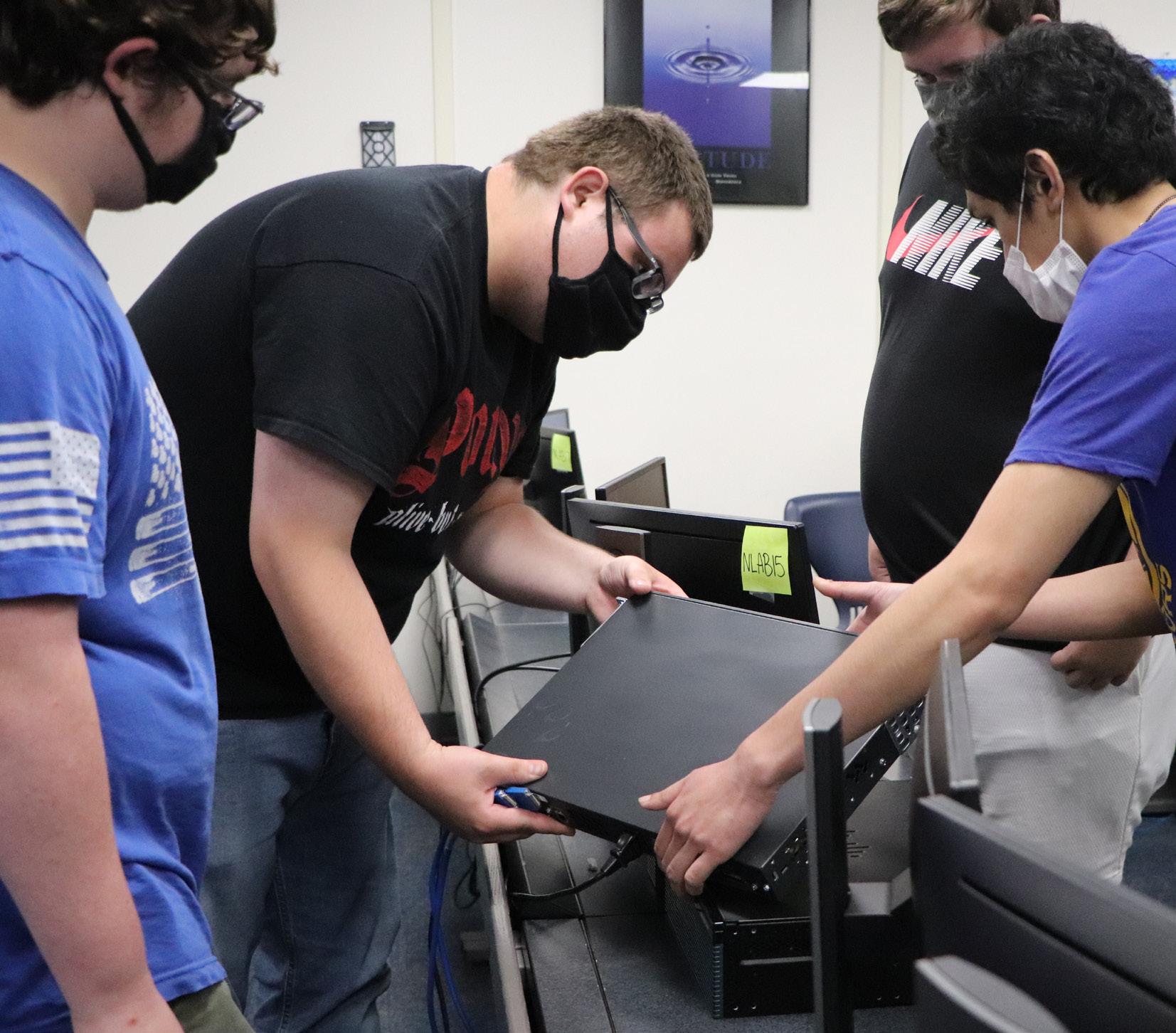
Kaskaskia College District 501 President and Board of Trustees

George Evans President
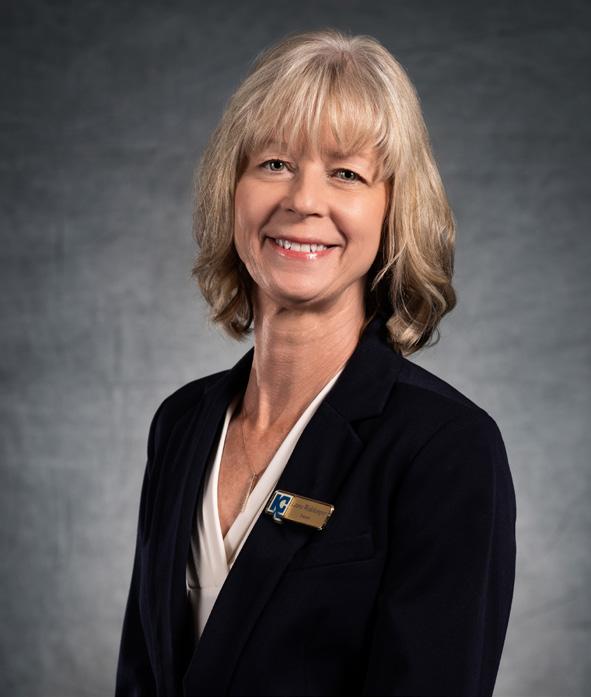
Laura Wedekemper Secretary

Jeff Brown Bill Hawley Chairman

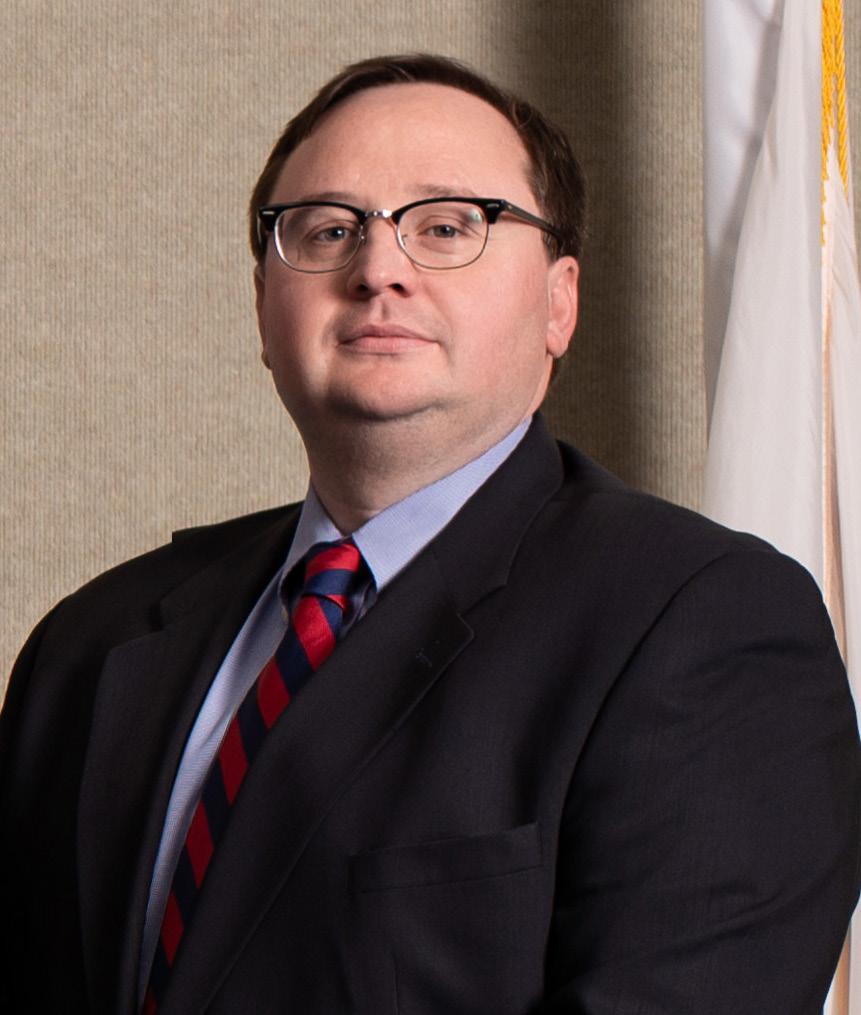
Bryan Holthaus
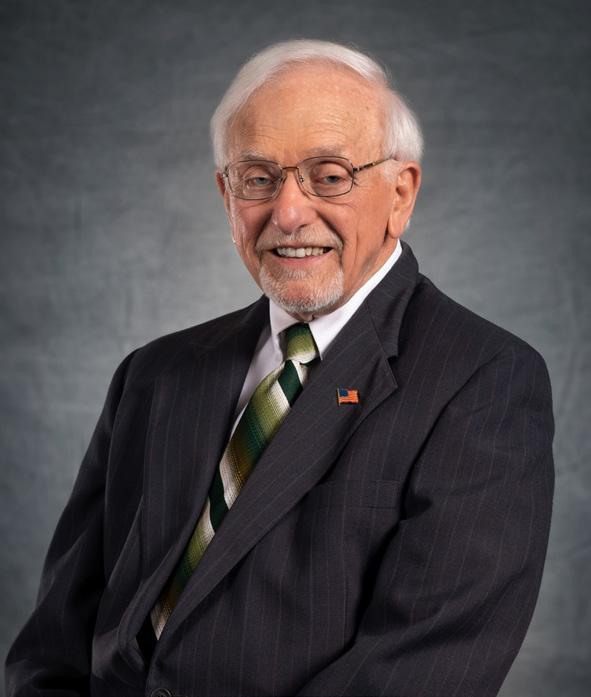
Jim Beasley Linda Stover Vice Chairman


Louis Kalert
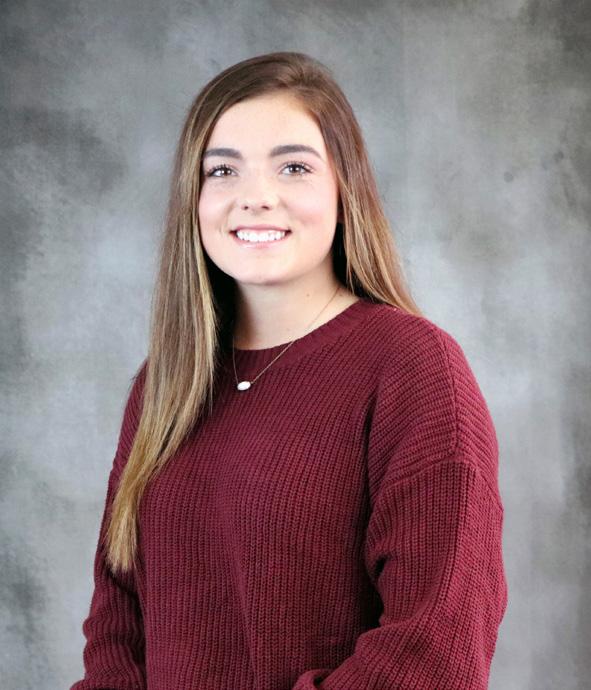
Alexis Enke Student Trustee
Kaskaskia College Foundation
The Kaskaskia College Foundation is a non-profit 501(c)(3) organization established exclusively for the advancement, assistance, and support of Kaskaskia College. Membership in the Foundation consists of individuals interested in furthering the educational endeavors of Kaskaskia College and enhancing the College’s efforts to benefit the community.
The Kaskaskia College Foundation recognizes that traditional resources (state and federal funding) typically support only the base needs of education while private gifts make the College exceptional. Private donations can fill the gap between public funding and student need, between subsistence and excellence. Through the procurement of private donations, the Foundation seeks to provide students with access to their educational goals as well as providing them the opportunity to learn with current equipment and resources in an environment that is conducive to learning.
The primary goal of the Kaskaskia College Foundation is to raise funds for projects and programs not funded by state or federal monies. Donations to the Foundation are used for expanding student opportunities, enriching the quality of teaching and learning, the acquisition of new and emerging technologies, physical improvements and broadening opportunities for the visual and performing arts.
The Foundation receives gifts of money, property, stocks, bonds and other types of contributions, as well as bequests. Gifts to the Foundation are fully tax deductible and often provide tax savings for the donor.
For more information or to become a donor to the Kaskaskia College Foundation, contact any officer or director listed below or call the Institutional Advancement Officer at Kaskaskia College at 618.545.3069.
OFFICERS
Craig Finke
President Nashville
Wesley Gozia
First-Vice President
Salem
Bruce Barkau
Second Vice
President
Okawville
Jay Jolliff
Treasurer
Patoka
LuAlice Kampwerth
Secretary
Carlyle
DIRECTORS
Michelle Barbee
Salem
Bryan Holthaus
Carlyle
James R. Lampe Germantown
Leonard Rose
Salem
Brad Barkau
Okawville
Jack Johnston Vandalia
Maryann Langenfeld
Centralia
Brad Small
Hoyleton
Karen Droste
Nashville
Ty Bates Patoka
Ted Macon Carlyle
Marvin Wiegman
Carlyle
Whitney Kampwerth Luebbers
Carlyle
Dennis Hesker
Okawville
Bill Hawley
Odin
Nathan Deien Trenton
Kevin Rench
Nashville
Jerry Moyer
Greenville
George Evans
Albers
Ex-Officio Member
The Kaskaskia College Foundation is a non-profit organization dedicated to assisting Kaskaskia College in enhancing the educational aspirations of its students and to support their pursuit of lifelong learning.










